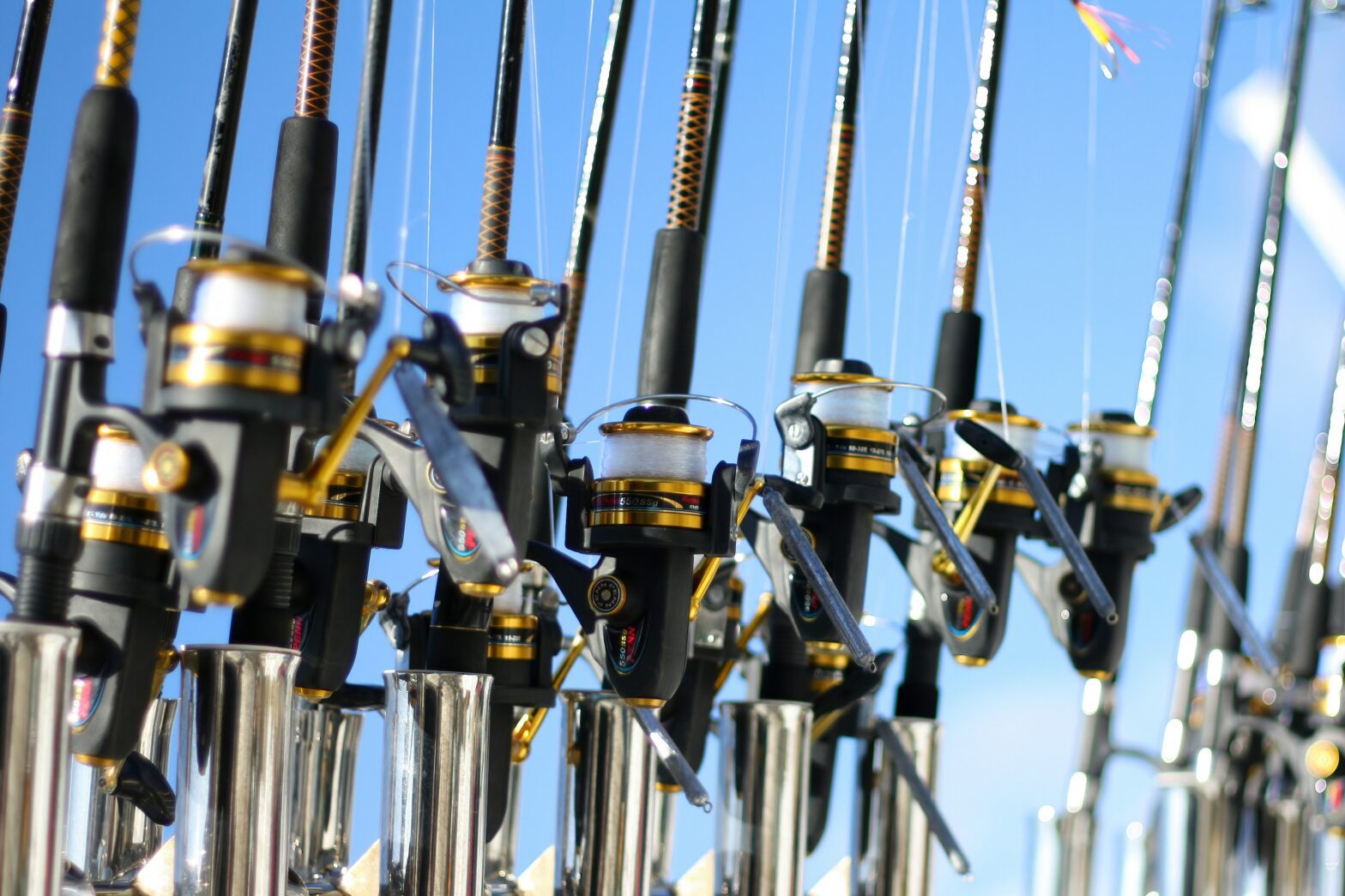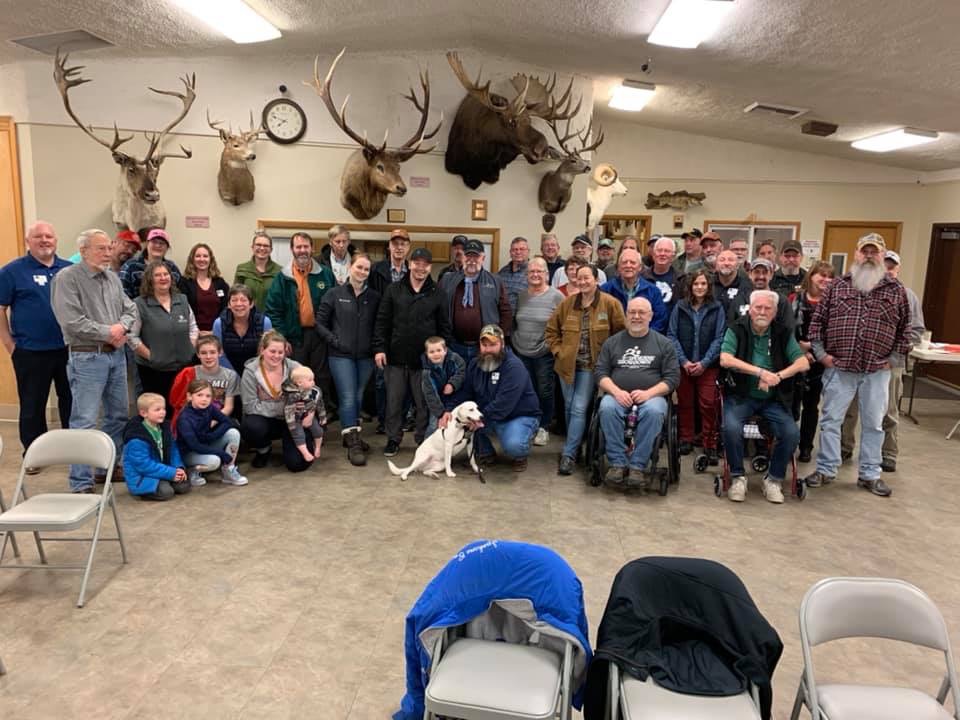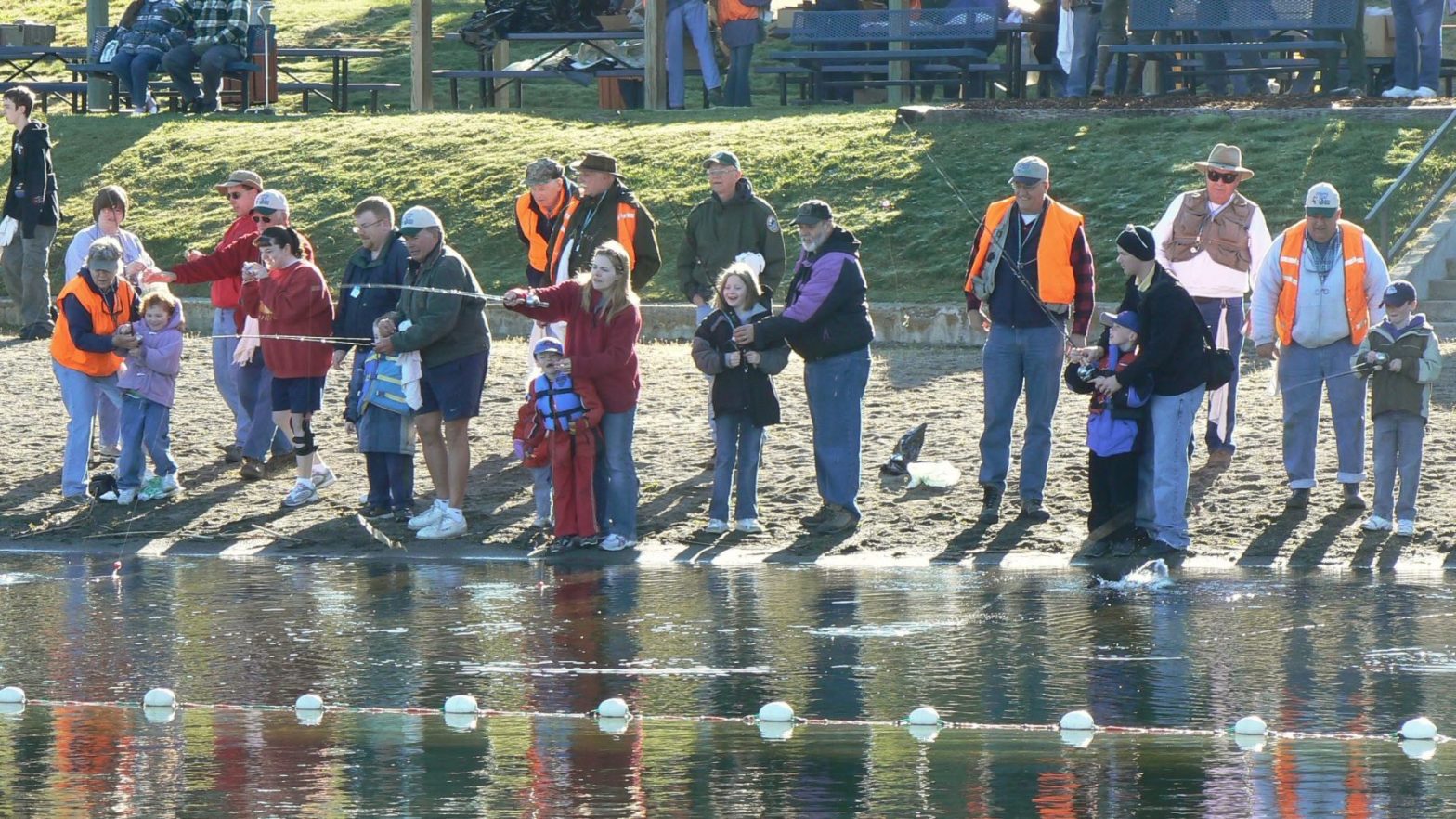This Conservation Corner article is written by INWC member Ken McNaughton, M.F., who chairs our Fishing Committee. Ken shares an important conservation practice that many anglers may not be aware of—one that can make a significant difference for wildlife and our aquatic environments with just a small change in how we dispose of used fishing line. Recycling Fishing Line is Conservation The first thing to know about recycling old line is the fishing line types that can be collected. The only recyclable and, therefore, the most eco-friendly fishing line is a single-filament, nylon product like monofilament or fluorocarbon—even if it’s colored fishing line. Monofilament is a strong, single-strand plastic line—and the most common type among anglers. Fluorocarbon is a single strand of polyvinylidene fluoride. In a landfill, these types of lines won’t break down over time, so they can pose problems for birds and animals who get tied up in them. That’s why it’s great that they can be recycled. Other lines, like braided or fused types, can’t be recycled, but there are still ways to handle these discarded lines to minimize their impact on the environment. Finding a Collection Station Once you know that your line can be recycled, it’s important to understand that you can’t place it in your home recycling bin. Instead, you need to find a designated collection station. In cooperation with the Region 1 office of WDFW, the INWC, several years ago, installed 39 monofilament recycle stations at 31 area lakes managed by WDFW. Many INWC volunteers helped make this project a success. If you don’t know where to find one, contact the Area Water Access Manager at WDFW. Or check popular places that accept old line in marked bins placed either inside or outside, including bait and tackle shops, boat ramps, fishing piers, and fishing access points. Preparing Your Line for Recycling Keep in mind that only the line itself can be recycled. That means you have to remove any hooks or lures before you place the line in a bin. It’s also essential to make sure the line doesn’t have a lot of plant material or other growth on it before putting it in a collection facility. Create Your Own Collection Site If you don’t have a collection site anywhere near you for old fishing line, you can create your own! You can build a bin just like the ones at our established stations with 4 inch PVC and supplies from your local hardware store. Recycling fishing line is one of those simple conservation actions that carries tremendous importance. Discarded monofilament and fluorocarbon lines can persist in the environment for hundreds of years, entangling birds, mammals, and aquatic life with devastating consequences. By taking a few extra moments to properly dispose of old fishing line at designated recycling stations, anglers directly protect the wildlife and natural spaces we all cherish. Through the INWC’s partnership with WDFW, we’ve made it easier than ever for our fishing community to be part of the solution. Every spool of recycled line represents countless animals spared from injury or death—making this truly one of the most impactful conservation practices any angler can adopt.
Tag Archives: #fishing
INWC Monthly Meeting – National Hunting & Fishing Day
We will have a presentation by Steven Dazey on the upcoming National Hunting and Fishing Day. Join us as we learn about how we can get involved and how kids can participate. Click the link below for more information. 2023_NHFD_poster_8.5×11 We will also have an INWC volunteer presentation, committee updates and drawings for in-person attendees. Doors open at 6:30, meeting begins at 7:00. **This will be a hybrid meeting if you cannot join us in person you can view the meeting online by clicking HERE
INWC Monthly Meeting – Pike Minnow Reward Program
Our program for the May General Meeting will be presented by John Hone, of WDFW Fisheries Division, where he will present information on the history and science behind the Pike Minnow Reward Program, and how to catch them. Doors open at 6:30, meeting begins at 7:00.
INWC Monthly Meeting – Kalispel Natural Resources & Arrow Lakes Caribou Society
We will have a presentation by Kalispel Natural Resources & the Arrow Lakes Caribou Society. Join us as we learn about the efforts under way to help stabilize and recover the Selkirk Caribou herds. There will also be an appetizer potluck, prize raffles (in person attendees only), and BHS updates. Please consider bringing an appetizer to share. Doors open at 6:30, meeting begins at 7:00. **This will be a hybrid meeting if you cannot join us in person you can view the meeting online by clicking HERE
Spokane Kid’s Fishing Day *Volunteers Needed*
Saturday May 6th, 2023 at Clear Lake (South of City of Medical Lake, in southwest Spokane County) Fairchild Air Force Base Recreation Area Sponsored by: Inland Northwest Wildlife Council Washington Department of Fish and Wildlife and other fine sponsors LIMITED TO FIRST 950 SIGN-UPS Each kid receives: “Kids Fishing” T-Shirt and other gear The chance to catch a 3-fish limit of trout Cost: $10 per child Age: 5-14 Years For more information go to: https://wdfw.wa.gov/fishing/contests/youth.html REGISTRATIONS NEED TO BE POSTMARKED BY: APRIL 21st, 2023 2023-clear-lake-kids-fishing-event-registration-form-0
*Volunteers Needed* Spokane Kid’s Fishing Rod Assembly
Come one, come all – for fishing rod assembly night. Kids Fishing Day is coming up soon (May 6th), and we will need all volunteers ready to go. So, Thursday evening, April 20th, in the Council Hall – bring friends
ADA Open House
The Inland Northwest Wildlife Council, and its Disabled Access Team of Ken McNaughton and Ron Zubrick, invites you to join them for a day filled with information for those who have disabilities that create barriers, but still want to enjoy the great outdoors and all it has to offer. You will gain information on new disabled hunter access permit regulations, hear about existing local programs, assistive devices available for disabled sportsmen and locations provided for disabled sportsmen. With many area citizens having barriers that prevent them from fully enjoying our opportunities to hunt, fish, observe wildlife, or enjoy the outdoors, we will share ways to improve accessibility and increase opportunities. If you have a disability or know someone who does and want to regain the thrill of fishing, hunting, and wildlife viewing, then make plans to join us. Lunch is provided! Door Prize for one lucky disabled sportsman/woman: a one-day guided Chinook/Sockeye trip on the Columbia River, donated by John Sowell and “Fishin’4All.” Wow! Please RSVP at 509-487-8552 Inland Northwest Wildlife Council
INWC Monthly Meeting – Holiday Potluck and Board Elections
Come hungry and ready to vote! The INWC will be providing ham and turkey, please consider bringing a side to share with everyone. We will be holding our annual elections for our board of trustees (biographies for current candidates will be posted in our digital newsletter on November 20, 2022). You must be a current member in good standing to vote so call the office today (509-487-8552) to check your membership status. Doors open at 6:30, meeting begins at 7:00.
INWC Monthly Meeting – Chris Flanagan IEBA Presenting
Chris Flanagan member of Inland Empire Beekeepers Association, IEBA, and a local bee keeper will be sharing a presentation with us about local pollinators, pollinator habitat, and beekeeping. This will be a great opportunity to learn about the importance of pollinators and steps you can take to help them in your own backyard. Doors open at 6:30, presentation begins at 7:00. Light refreshments provided. INWC Junior Activity – Pollinator Plants At the June meeting several INWC Junior members painted flower pots in preparation for this month’s meeting. For September’s INWC Junior gathering we will be planting flowers that are great for pollinators, and sharing information about bees with our junior members. VOLUNTEERS NEEDED! The INWC Junior program is only possible with the support of our volunteers. You don’t have to be an expert in bees to succeed at this project. We provide all the supplies and materials, you just bring a smile and a dose of patience.
INWC Monthly Meeting – Robbie Kroger Presenting
This month our meeting seminar presentation will be provided by Robbie Kroger, founder of Blood Origins. INWC Junior will be painting and preparing flower pots for an upcoming project (planting flowers for bees during the meeting with Inland Empire Bee Keepers) Doors open at 6:30, presentation begins at 7:00. Light refreshments provided.




